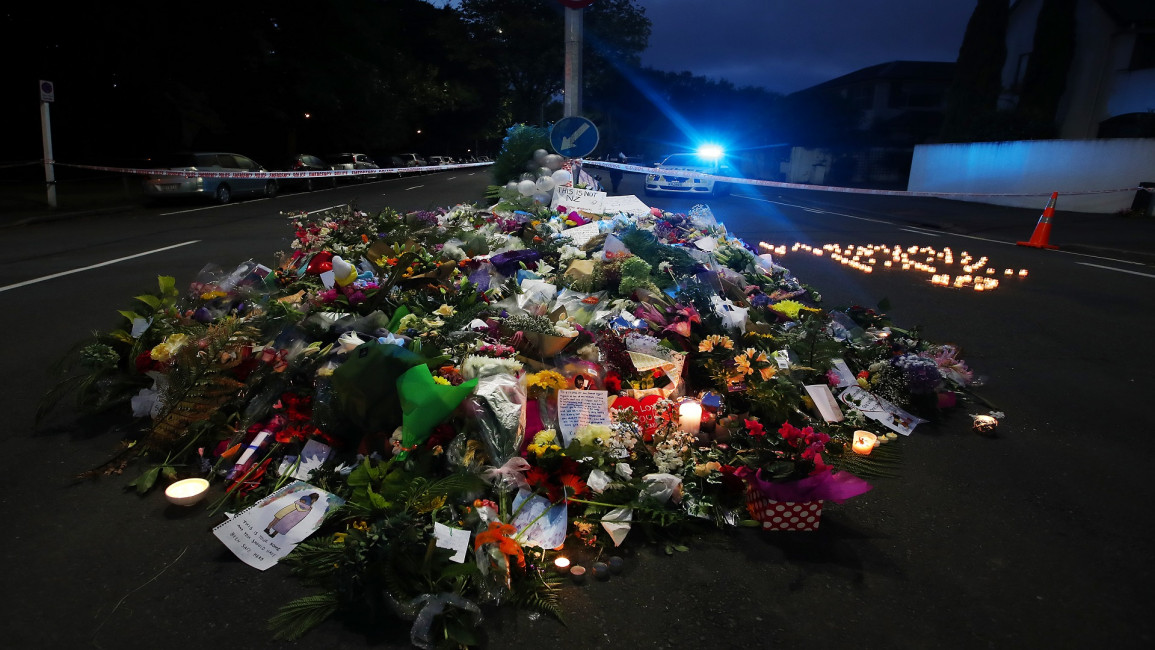New Zealand begins handing over bodies of mosque massacre victims amid anger over burial delay
Muslims whose loved ones were gunned down by an Australian white supremacist at two mosques last Friday have had their grief compounded by the failure of the authorities to return bodies to families in time for a speedy burial, as required under Islamic custom.
Police in Christchurch said only 12 of the 50 victims had been identified, and appeared to warn next of kin to brace for further delays.
"We are doing all we can to undertake this work as quickly as possible and return the victims to their loved ones," a police statement said.
"While identification may seem straightforward the reality is much more complex, particularly in a situation like this."
Prime Minister Jacinda Ardern vowed on Tuesday that gunman Brenton Tarrant would face the "full force of the law" as she opened a sombre session of parliament with an evocative "as-salaam alaikum" message of peace to Muslims.
But the black-clad Ardern pledged to grieving Kiwis that she would deprive the 28-year-old gunman of the publicity he craved by never uttering his name.
"That is why you will never hear me mention his name. He is a terrorist. He is a criminal. He is an extremist. But he will, when I speak, be nameless," she told assembled lawmakers.
"I implore you: Speak the names of those who were lost rather than the name of the man who took them."
The 38-year-old leader closed by noting that Friday marks a week since the attack, and urged New Zealanders to grieve along with them.
"Wa alaikum salaam wa rahmatullahi wa barakatuh," she said -- "May the peace, mercy, and blessings of Allah be with you too."
 |
The forensic delays are casting a cloud over New Zealand's handling of the horrific ordeal |  |
Families gather
But the forensic delays are casting a cloud over New Zealand's handling of the horrific ordeal.
Dozens of relatives of the deceased have already begun arriving from around the world ahead of expected funerals which have already been delayed far beyond the 24 hours after death usually observed under Islam.
Peter Elms of New Zealand's immigration department said 65 visas had been granted for overseas family members so far.
Christchurch police said post-mortems had been completed on all 50 victims.
But only 12 had been "identified to the satisfaction of the coroner" nearly a week after the rampage.
Javed Dadabhai, who travelled from Auckland to help bury his cousin, said families and volunteers had been warned of a slow process.
"The majority of people still have not had the opportunity to see their family members," he told AFP.
Mohamed Safi, 23, whose father Matiullah Safi died in Al Noor mosque, pleaded for officials to let him identify his father and set a date for his burial.
"There's nothing they are offering," Safi, an Afghan refugee, said outside a family support centre.
"They are just saying they are doing their procedures, they are doing their process. But what process? Why do I not know what you are going through to identify the body... Why am I not contacted as an immediate family member?"
In a rambling manifesto, the gunman had said he was motivated partly by a desire to stoke a violent response from Muslims and a religious war between Islam and the West.
The Islamic State group, in a message on social media, appeared to encourage retaliatory attacks.
"The scenes of killing in the two mosques... incite members of the caliphate living there to avenge their religion and the children of the umma (Muslims) who were are being slaughtered in all corners of the earth with the sponsorship and blessing of the Crusader countries," it said.
 |
Following the mass shooting, Ardern has promised to reform New Zealand laws that allowed the gunman to legally purchase weapons used in the attack |  |
Gun control
Following the mass shooting, Ardern has promised to reform New Zealand laws that allowed the gunman to legally purchase weapons used in the attack.
New Zealanders have already begun answering government appeals to hand in their weapons, including John Hart, a farmer in the North Island district of Masterton.
Hart said it was an easy decision for him to hand in his semi-automatic and tweeted: "on the farm they are a useful tool in some circumstances, but my convenience doesn't outweigh the risk of misuse. We don't need these in our country."
The tweet drew a barrage of derogatory messages to his Facebook account -- most apparently from the US, where the pro-gun lobby is powerful.
Ardern has said details of the proposed reform will be announced by next week, but she indicated they could include gun buybacks and a ban on some semi-automatic rifles.


![Minnesota Tim Walz is working to court Muslim voters. [Getty]](/sites/default/files/styles/image_684x385/public/2169747529.jpeg?h=a5f2f23a&itok=b63Wif2V)




![Israeli officials are considering exiling Yahya Sinwar to Sudan as part of a deal to end the war [Getty]](/sites/default/files/styles/image_212x120/public/1251837582.jpeg?h=127ba027&itok=UTeIubIr)
![Debris near Rafic Hariri International Airport [Getty]](/sites/default/files/styles/image_330x185/public/2176162423.jpeg?h=a5f2f23a&itok=MCSK9mkM)
![An Israeli air strike on Jabalia killed teenage journalist Hassan Hamad [Screengrab/X]](/sites/default/files/styles/image_330x185/public/2024-10/hassan%20hamad1.jpg?h=c12e0b96&itok=Rd_dyCVp)